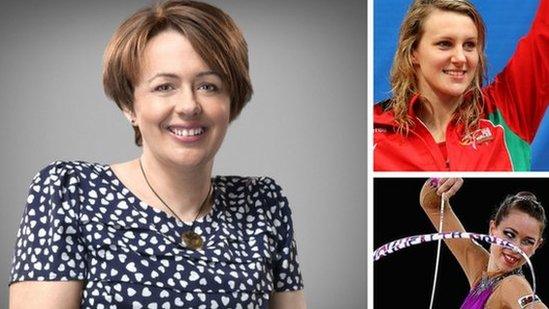Gender stereotypes: Teen called lesbian for playing football
- Published
Darcie: Bullies "won't stop me playing football"
A 13-year-old girl who dreams of playing football professionally says she has been criticised and called a lesbian for playing a "boy's sport".
Darcie, 13, from Cwmbran in Torfaen has played football since she was eight.
But she has been told by PE teachers that she cannot play it as a recommended sport at school - instead hockey and netball are for girls.
The Children's Commissioner for Wales said gender stereotyping was "depressing".
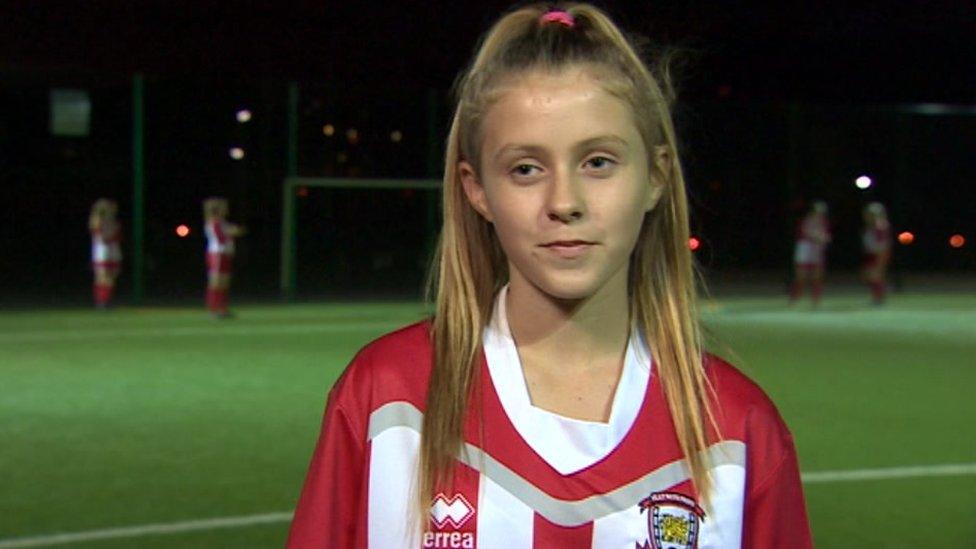
Darcie said she has been criticised because of her gender and playing football
Darcie said she was determined to challenge the negative attitude.
"I want to play football, and I don't want someone to criticise me," she said.
"They have criticised me a lot by saying I'm a man or a lesbian. They've just called me all different types of names."
Darcie, who is a central midfielder for a local football team, said it was not just boys who were responsible, with some parents shouting "don't let a girl tackle you" as well.
She said she had asked to play football in school but had met some opposition.
"Girls' sport is hockey, netball, dance and all that and the boys' is basketball, rugby or football.
"I ask my PE teachers if I can play football, can I do that as a recommended sport and they say no because it is a boy's sport.
"I think it is wrong that people criticise girls for playing football because it is something they want to do and they love."
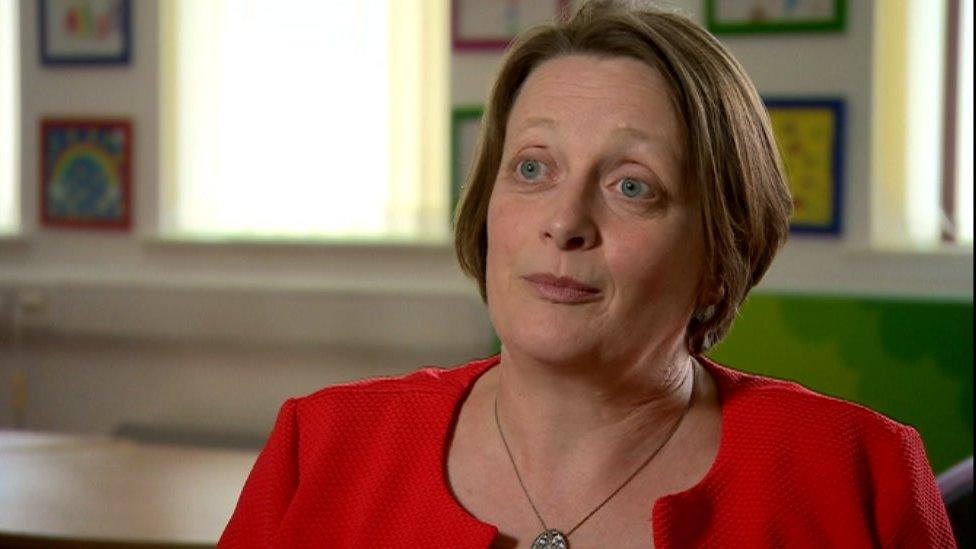
Sally Holland said sex-segregation in lessons was surprising
Sally Holland, the Children's Commissioner for Wales, said it was "depressing" to hear girls and boys complaining about gender stereotyping in this day and age.
"Girls say that there's often very little opportunity to take part in football and rugby," she said.
"Sometimes they have clubs where they can take part but it is not part of their core PE lessons.
"It makes girls and boys think their life has got to be constrained perhaps into one pathway or another and it is just a real harm that they can be turned off sport and exercise."
She described the sex-segregation in lessons as "surprising" in 2018 but reflective of wider attitudes in society.
Dr Nalda Wainwright, director of the Welsh Institute of Physical Literacy, said the reliance on "traditional sports" in school is a hangover from the post-war period with the introduction of the 1944 Education Act.
"It is really down, I suppose, to the training of teachers. We know we have a real lack of expertise, particularly in primary schools," she said.
"It is not really a specialist subject and teachers will tend to replicate the experience they had."
The National Education Union said it was "unacceptable" that the girl from Torfaen has been treated in this way and it hoped that common sense would prevail and that the decision is reversed.
"We would not expect any pupil to be subject to gender stereotyping in this way and that would be and has been our advice to members," said David Evans, Wales secretary of the union.
The Welsh Government said it wanted young people taking part in sport to have equality of opportunity so they could enjoy participating in the sport of their choice and lead a healthier and more active lifestyle.
"There is nothing that directs schools to follow particular sports for girls and boys and many are already looking at ways in which they can tackle gender stereotyping," said a spokesman.
"We would encourage schools to share this good practice and continue to address gender equity and equality through a whole school approach."
- Published15 March 2018
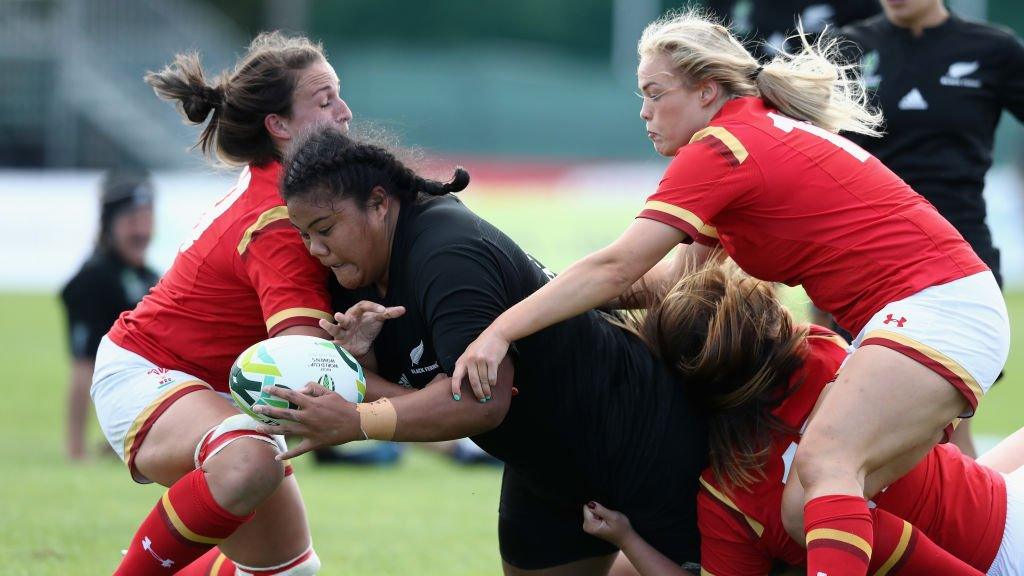
- Published14 April 2018
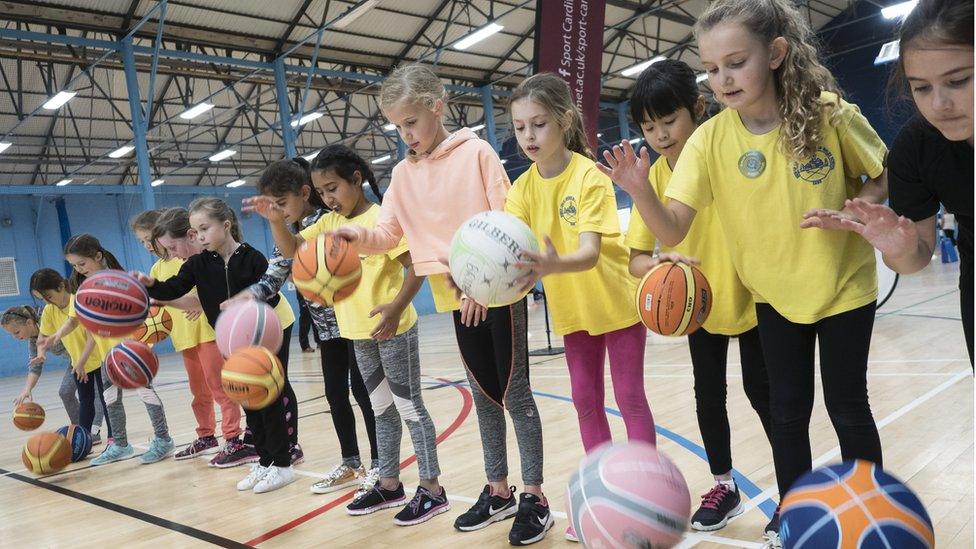
- Published8 March 2016
